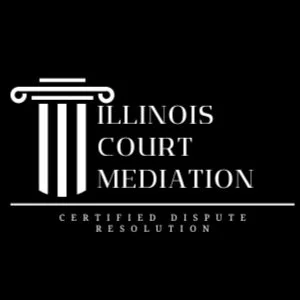COURT-ORDERED MEDIATION
Mediation is a non-binding process that is facilitated by a neutral, third-party mediator who attempts to bring the parties toward a mutually acceptable agreement. In Illinois, circuit courts may mandate mediation for certain types of cases. This is most common in divorce and parentage cases involving allocation of parental responsibilities, parenting time, relocation, and other non-child support issues. Mediation may also be mandated in some cases for non-child related issues such as disputes over finances.
Local court rules vary regarding how the mediation is handled (e.g., how many mediation sessions are required, how long each session will last, confidentiality provisions, etc.). Most counties allow parties to choose their own mediator. If the parties are unable to agree on a mediator, the court appoints one from their list of court-certified mediators.
The Benefits of Voluntary Mediation
When parties choose to go to private mediation, they are often able to settle their disputes amicably and economically. Since the parties choose the process voluntarily, they are often more motivated to reach a successful resolution. Mediation is guided by a neutral, third-party mediator who facilitates a discussion between the parties toward a workable agreement. Though the mediator facilitates the process, the parties are in charge of the outcome. The mediator cannot impose a settlement on those involved; any settlement must be agreed upon by both sides for it to become legally enforceable.
There are several advantages to voluntary mediation, including:
The process can allow parties to bypass traditional litigation, which usually saves time and money.
The process is cooperative rather than combative, allowing both sides to be heard and to work toward a mutual understanding.
The process is kept private and confidential and does not become part of the public court record.
The process provides more flexibility for the parties to develop customized solutions for their specific needs.
The process empowers the parties to develop their own agreement, making it much more likely that they will comply with it.

